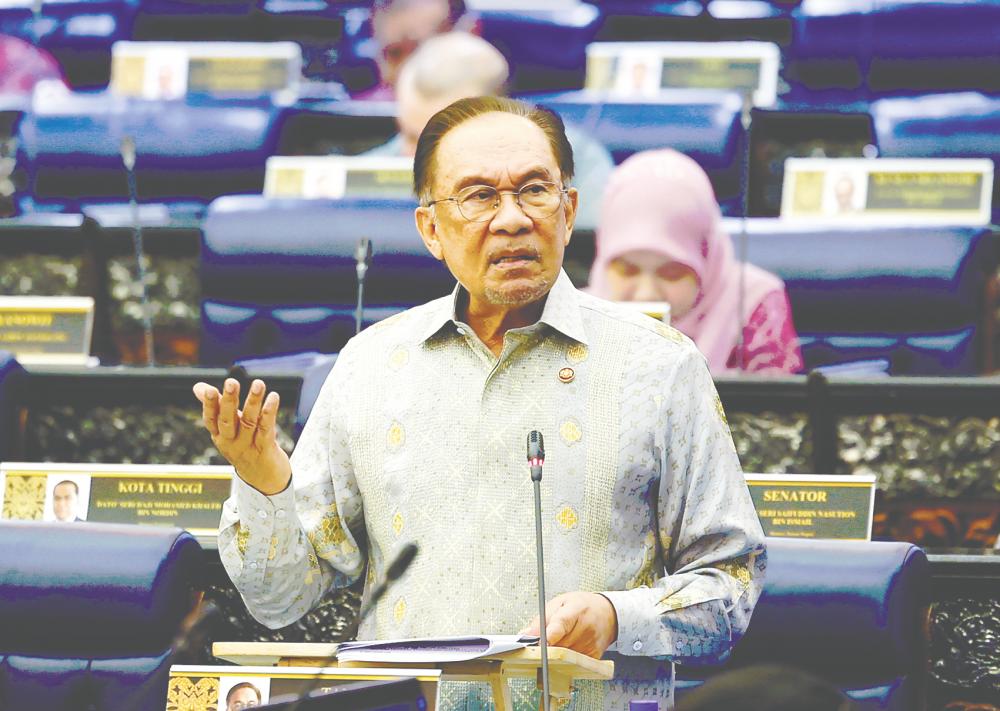THE chief secretary to the government, Tan Sri Shamsul Azri Abu Bakar, in his New Year’s message to civil servants on Jan 20 accentuated that “reformation is a necessity in the public service”.
His aspiration and vision are highly relevant and aligned with the current changes of the time.
The Malaysian public service plays a crucial role in national development
and serves as the backbone in planning national policies and implementing development projects that impact the lives of the people.
However, in the face of rapid global changes and increasing global challenges, reform in the public service has become imperative.
This reform is not only aimed at enhancing the efficiency of public service but also at ensuring that it remains relevant, maintains integrity and is capable of delivering better services to the people.
The public service has grown significantly since the country gained independence, but the existing bureaucratic structure and culture need to be transformed to adapt to current demands.
Today, the public demands faster, more efficient and user-friendly services. There are frequent complaints in various media regarding issues related to the performance of public servants in terms of transparency, accountability and accessibility. Therefore, reforms in organisational structures and work culture are necessary to make the public service more responsive to the needs of the people.
For instance, the introduction of flexible work systems, such as work-from-home arrangements and the use of technology in public service management are steps towards modernising the public sector. This will enable the government to provide faster and more efficient services while reducing bureaucratic red tape that often hinders public needs.
One of the major challenges in the public sector is the limited use of technology in certain areas. Although efforts have been made to introduce
e-government and digital systems in public service, the application of advanced technologies such as artificial intelligence needs to be expanded to make services more integrated and
user-friendly.
Human resources are the most important asset in public service. Reform in human resource management is a critical aspect to ensuring that the public service operates more efficiently and productively.
Recruiting high-quality civil servants from diverse backgrounds, offering continuous training and implementing fair and transparent performance evaluations are key to the success of this reform.
There is also a need to introduce better mechanisms for developing leadership skills and competencies among civil servants. Emphasising human capital development early in their careers, particularly in mastering Malay and English languages, is crucial. This will create better career advancement opportunities and attract talented individuals to join the public service.
Another major challenge facing the public service is the issue of integrity and transparency. Corruption and abuse of power in certain government agencies have tarnished the image of the public sector.
According to the Malaysian Anti-Corruption Commission, as of October 2024, 43.4% or 546 individuals involved were civil servants.
Therefore, reform in integrity and accountability is essential to restore public trust in the government.
The latest Corruption Perception Index (CPI) released recently indicated that Malaysia has maintained its global ranking at 57th position in 2024 for the second consecutive year. Hence, the government has taken several concrete steps to combat corruption through various anti-corruption programmes, such as the National Anti-Corruption Strategy.
Even Prime Minister Datuk Seri Anwar Ibrahim has set a goal of improving Malaysia’s ranking in the CPI to the top 25 within the next decade.
Consequently, more efforts are needed at the agency and department levels to ensure that all civil servants understand and adhere to the principles of integrity in every action they take.
By increasing transparency in all aspects of public service, the government can improve the reputation of the public sector and enhance public confidence in the administrative system.
Malaysia is currently facing complex socioeconomic challenges. Issues such as the rising cost of living, economic disparities between urban and rural areas and graduate unemployment require immediate solutions from the public service.
Reforms must be implemented to ensure that the public service can adapt to changing demographics and evolving social needs.
Additionally, a more inclusive policy approach that focuses on the B40 and M40 groups will ensure that all segments of society benefit from national development.
Policies that prioritise social welfare and reduce economic disparities should be formulated to maintain stability and the well-being of the people.
Reform in the Malaysian public service is no longer an option but a necessity and cornerstone to ensure that the country can continue to grow and compete in this era of global digital advancement.
Through structural transformation, the adoption of advanced technology, improvements in human resource management and enhanced integrity and transparency, the Malaysian public service can deliver more efficient and effective services to the people.
With the implementation of comprehensive reforms, Malaysia will be able to build a higher-quality and more competitive public service, ultimately improving the quality of life for its citizens.
Dr G. Periasamy is a senior research fellow at the National Institute of Public Administration.
Comments: letters@thesundaily.com









